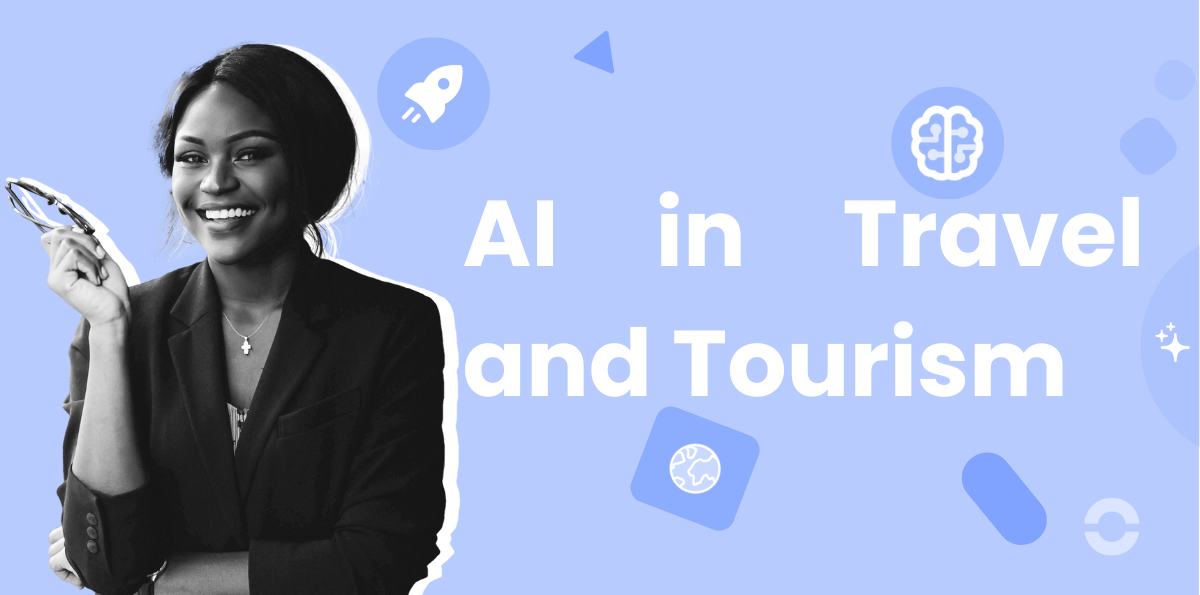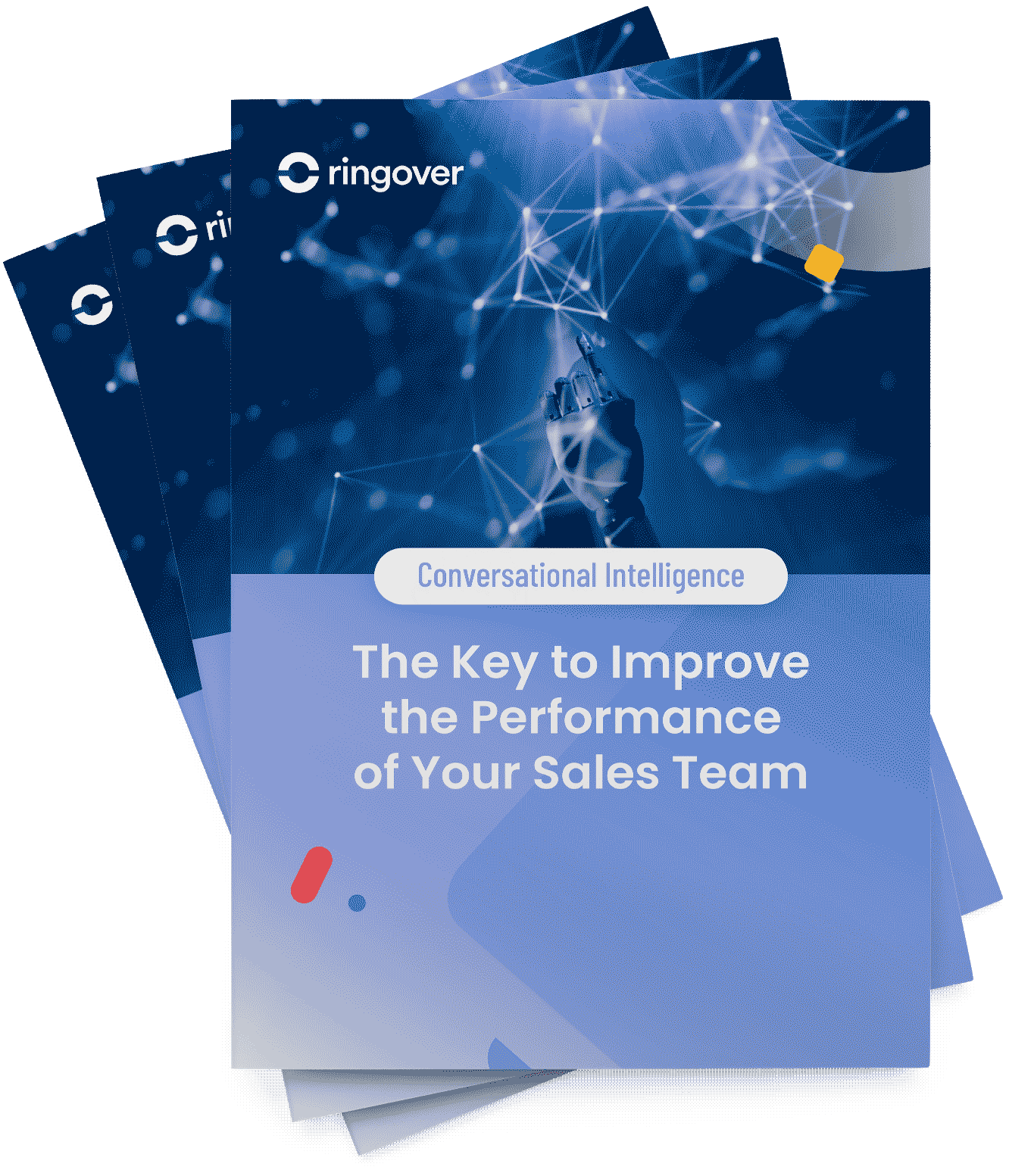Table of Contents
What if artificial intelligence became the key to a new kind of tourism—one that's more personalised? Today, AI is revolutionising the travel industry, transforming every stage of the journey—from planning to the on-site experience to interactions with various service providers.
So how is AI truly being integrated into this rapidly evolving industry? Let's explore how this technology is changing the game for both tourism professionals and travellers.
Artificial Intelligence: A Powerful Ally for Tourism
Artificial intelligence (AI) has firmly established itself as a vital pillar of the tourism industry. By automating specific tasks, analysing vast datasets, and creating personalised experiences, AI is deeply transforming tourism services.
Take, for example, chatbots and digital assistants that support travellers every step of the way, personalised suggestions based on data analysis, or improvements in operational processes for businesses. The integration of AI enhances the customer experience and streamlines management, making this technology a true driver of growth in the tourism sector.
AI in Tourism: Relevant Use Cases
1. Chatbots and Virtual Assistants: New Travel Companions ✅
AI-powered chatbots and virtual assistants have become essential tools for tourism companies. They allow quick and efficient responses to traveller questions—about schedules, bookings, or local attractions—while reducing the workload for human travel agents.
Thanks to AI, these chatbots now offer personalised recommendations tailored to each traveller's preferences and profile, significantly improving the customer experience.
Human travel agents also benefit from AI, using it to more easily find the best flights, hotels, and activities to match their clients' expectations.
These virtual assistants are becoming true travel companions—available 24/7 to answer questions and make trip planning easier.
2. Personalisation: A Tailored Customer Experience ✅
By analysing customer data (preferences, booking history, reviews, etc.), AI enables unmatched personalisation in travel experiences.
Machine learning algorithms identify each traveller's interests and expectations to suggest a tailor-made trip. Activity, restaurant, and accommodation recommendations are perfectly aligned with individual profiles.
AI-powered virtual assistants analyse customer conversations in real time to understand their desires and adapt suggestions accordingly. Generic offers are a thing of the past—hyper-personalisation allows companies to meet travellers' expectations precisely, dramatically boosting satisfaction.
3. Operational Optimisation Through Data Analysis ✅
AI enables tourism companies to analyse large volumes of data to optimise operations.
With predictive analytics, businesses can better manage peak periods, adjust pricing based on demand, forecast stock levels, and schedule infrastructure maintenance.
AI processes historical data from bookings, traffic, weather, and more to generate accurate predictive models.
This allows hotels, airlines, and other players to adjust capacity, pricing, and resource allocation, reducing waste and maximising revenue. Predictive analytics thus supports more effective operations at every level.
4. Empower by Ringover: Conversation Analytics for the Tourism Industry ✅
In an industry where customer interaction is critical, a conversational AI solution like Empower by Ringover offers a major advantage for tourism companies. This technology analyses conversations between customers and agents.
With advanced transcription and semantic analysis capabilities, Empower helps identify travellers' specific needs, pinpoint friction points, and refine the services offered.
For example, by analysing these conversations, Empower can uncover trends in destination preferences, comfort expectations, or recurring customer concerns.
Businesses can now fine-tune their offerings and enhance the customer experience in a proactive way.
In addition to improving customer relationships, Empower by Ringover also serves as a powerful optimisation tool for internal teams. Supervisors can monitor agent performance and identify areas for improvement—whether it's response speed or the quality of interactions.
Empower by Ringover proves to be a strategic asset, helping anticipate customer needs and streamline processes, all while ensuring a smooth and personalised experience for travellers.
The 5 Challenges of AI in the Tourism Industry ⚔️
While artificial intelligence presents an exceptional opportunity for tourism, its adoption does not come without obstacles.
1. Ethics and Data Protection
The first major challenge is ethics and data privacy.
As companies personalise services through data analysis, they must ensure the confidentiality and security of travellers' sensitive information. Mishandling this data could lead to a serious loss of customer trust.
2. Finding the Right Balance Between AI and Human Interaction
Another challenge lies in maintaining the balance between technology and human connection.
While chatbots and virtual assistants are extremely efficient for handling basic inquiries, they can't fully replace the empathetic, personalised service that a human agent provides—especially in emotionally charged or complex situations.
3. The Digital Divide
Accessibility is a key concern. Not all travelers are comfortable using digital tools, so the implementation of AI solutions must be designed to remain inclusive.
4. Cost for Small Businesses
Small tourism businesses may struggle to adopt these costly and complex technologies without the necessary infrastructure in place.
5. Training Tourism Professionals
Lastly, the rapid evolution of AI technologies raises the need for continuous training. Industry professionals must regularly update their skills to stay in step with innovations and make the most of these tools.

Conclusion: AI and Tourism — A Revolution Well Underway
Artificial intelligence and tourism are undeniably a winning combination, opening new possibilities to improve customer experience and optimise operations.
From the rise of chatbots to advanced data analytics, AI is disrupting traditional practices in the industry. However, challenges related to ethics, accessibility, and managing human interactions must be addressed to ensure this technological revolution benefits everyone.
For companies aiming to boost efficiency and deliver personalised experiences, solutions like Empower by Ringover can be game changers. By analysing conversations in depth and improving team performance, Empower helps anticipate traveller needs and strengthen customer relationships.
Curious to learn more? Discover how Empower by Ringover can transform your customer interactions and elevate your performance in the tourism sector.
AI in Travel and Tourism FAQ
How does artificial intelligence enhance the personalisation of travel offers?
Artificial intelligence improves the personalisation of offers by analysing demographic data, travel preferences, and tourist behaviour. This makes it possible to deliver tailor-made recommendations for destinations, accommodations, and activities that are perfectly aligned with each customer's expectations. Thanks to sophisticated algorithms, these offers can, depending on the tools used, be adjusted in real time, ensuring unique experiences for every traveller.
What role does AI play in demand forecasting and dynamic pricing in the tourism industry?
By analysing real-time data, AI enables companies to predict future trends and dynamically adjust their pricing to maximise occupancy rates and optimise resource management—thereby increasing profitability.
How do AI-powered chatbots and virtual assistants improve the customer experience in tourism?
AI-optimised chatbots and virtual assistants provide 24/7 customer service. They deliver quick and accurate responses, personalised recommendations, and automate tasks like bookings and information requests. By reducing the workload of staff and providing relevant, real-time information, these tools significantly enhance traveller satisfaction.
What security measures should tourism businesses implement to protect customer data?
To ensure data privacy, businesses must adopt strict security measures, such as robust controls for data transmission and storage. It's also essential to comply with regulations like the GDPR and ensure that all third-party providers are also meeting these requirements.
How can AI help improve the management of tourist flows?
AI can analyze real-time data on visitor numbers, peak periods, and visitor behaviour. This helps forecast and better manage tourist flows by preventing overcrowding, optimising resources, and improving the distribution of visitors across various attractions.
What are the challenges of integrating artificial intelligence into the tourism sector?
There are several challenges to AI integration in tourism: protecting personal data, ensuring that small businesses have access to the necessary technology, accommodating clients who may not be comfortable with digital tools, and providing ongoing training for teams to stay current with technological innovations.
How does AI contribute to managing tourism operations?
AI helps optimise operations by analysing historical data on bookings, traffic, and even weather. With predictive analytics, businesses can adjust capacity, allocate resources, and set prices based on expected demand. This improves profitability and reduces waste by anticipating logistical needs.
Can artificial intelligence replace travel agents?
AI supports travel agents by automating repetitive tasks and offering personalised recommendations based on traveller preferences.
However, human agents remain essential for handling complex situations and delivering tailored expertise—areas where AI still has limitations.
How can AI enhance the post-trip customer experience?
AI allows companies to gather traveller feedback after their trip, analyse customer reviews, and identify areas for improvement. With sentiment analysis, it can also suggest special offers or ideas for future trips, thereby boosting customer loyalty and engagement.
Published on July 3, 2025.



